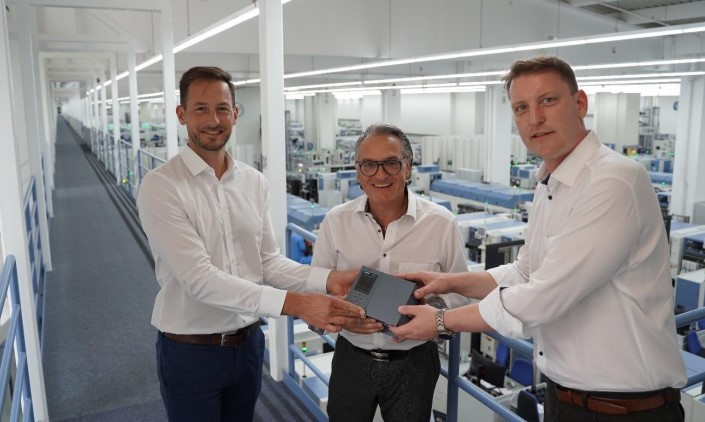In order to advance CO2-optimized industrial production, the technology company Siemens and BayWa decided to work together. As part of a pilot project, the two companies are combining Sigreen, Siemens’ software for emissions management, with BayWa Carbon Connect, BayWa’s software for emissions offsetting.
In the future, this will help industrial enterprises understand product-specific emissions across the supply chain and all the way to their offsetting. The first step is identification of a product’s real carbon footprint across the supply chain using Sigreen, after which measures are derived for avoiding CO2 and, finally, emissions that are currently unavoidable are offset by purchasing CO2 certificates from trusted climate protection projects via BayWa Carbon Connect. Only projects that store CO2 – for example, in biomass or humus – are selected for the joint pilot project.
Uniform quality standards for climate protection projects
The combination of the two software solutions will make it possible to forward information on emissions offsetting projects across the supply chain to other companies without restricting the data sovereignty of suppliers and sub-suppliers. This provides a digital means for defining and incorporating uniform quality standards for emissions offsetting projects within a company’s own supply chain. In the future, this will inform manufacturers of whether their suppliers’ products have been offset and with what projects.
“The declared vision of this joint pilot project is a consistent, end-to-end process that is reliable and certified, from the generation of unavoidable carbon emissions to the ultimate removal of these emissions from the atmosphere,” says Dr. Gunter Beitinger, SVP Manufacturing, Factory Digitalization and Sigreen at Siemens and Chairperson of the Estainium Association.
“Until now, the lack of transparency has meant that companies have been unable to fully trust the neutralization and compensation measures of their own supply chain. I believe that by combining BayWa Carbon Connect and Sigreen, we’ve paved the way for uniform quality standards within the supply chain, and in this way have taken a transformative step toward credible emissions offsetting in industry,” says Steffen Winkler, Business Unit Lead of IT Products and Services at BayWa and Head of BayWa Carbon Services.
Specific use case at the Siemens factory
Siemens is presenting a specific use case based on its own production in Amberg, Germany: For the duration of the project – from January 1, 2023, to December 31, 2023 – the company is offsetting the carbon emissions that have been generated by the production of selected products from the Simatic S7-1500 controller family. This takes into account emissions from the supply chain to the factory gate (“cradle-to- gate”). During the period from 2015 to 2022, the Electronics Works Amberg demonstrably reduced its CO2 by 49 percent and set its sights on becoming CO2- neutral by 2026. A variety of measures are being used to reduce emissions from the supply chain. For example, Siemens is relying on the use of sustainable materials and on cooperation with suppliers to reduce product-specific carbon footprints. In 2023, the factory received the Sustainability Award from the World Economic Forum.
Sigreen
With Sigreen, Siemens is already enabling its customers to identify and share information on product-specific emissions across entire supply chains based on real data. This allows producing companies to quantify the effectiveness of measures to use renewable energies, save resources, and shorten transportation routes across the value chain. To improve the reliability of data, Siemens relies on cryptographic keys and the inclusion of independent certification bodies. Sigreen belongs to the open, interoperable Siemens Xcelerator portfolio.
BayWa Carbon Connect
The BayWa Carbon Connect software is the digital arm of the BayWa Carbon Services Business Unit, which helps companies combine comprehensive climate management with reliable emissions offsetting, supported by digitalization. This means that climate protection projects have to meet certain quality criteria, such as those related to the type of climate protection technology, the traceability of the emissions reduction, project size, or project location, in order to be added to the portfolio. This makes them transparent and credible. Projects implemented by BayWa are evaluated and monitored via remote sensing and individual project measures are documented in BayWa Carbon Connect. BayWa Carbon Connect can exchange data on the acquired neutralization and compensation projects with other software systems via digital interfaces. The register accessed by BayWa Carbon Services ensures that CO2 certificates are not claimed multiple times.
During the pilot project, data interfaces were designed and climate protection projects were selected in close cooperation with the Estainium Association. With this collaboration, Siemens and BayWa are supporting the association’s vision of achieving the net zero goals of the industrial sector with the aid of digital technologies.

















